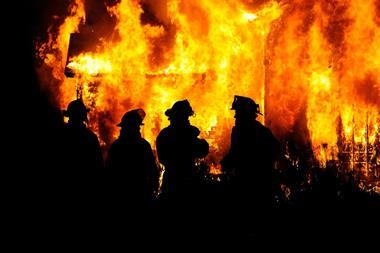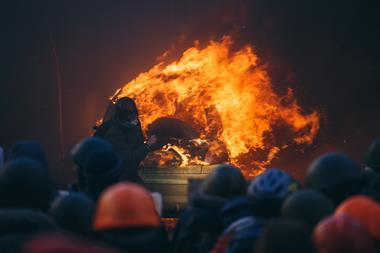Employers will need to go through an evolution in their Duty of Care provisions, just as they did post 9/11
The risk level to the global workforce has reached its highest since 2016 according to the International SOS Risk Outlook 2021, and is expected to increase yet further in 2021.
Unsurprisingly, around eight in ten risk professionals believe the health and security risks faced by the workforce increased in 2020 (specifically for “domestic employees” (85%), “assignees” (81%), “student and faculty” (80%), “business travellers” (79%) and “remote workers” (77%)).
Around half believe that this will increase further in 2021, a concern most acutely felt in Asia, especially among those responsible for assignees (60%) and business travellers (60%).
Respondents from the US were most likely to report an increase in risk (91%). This is alongside a degradation in trust in local governments & health bodies; seen as a key challenge for a third (31%) of risk professionals surveyed – most acutely felt in the Americas (40%).
Dr Neil Nerwich, group medical director at International SOS comments, “The Covid-19 pandemic has created a tripartite of crises, with public health, geopolitical and economic crises all impacting the workforce and business on a global scale. This has been exacerbated by an infodemic in an increasingly complex world environment.”
”While the news of a potential vaccine is very positive and resources are providing direction and support, organisations will need to go through an evolution in their Duty of Care provisions. Just as 9/11 changed the way that employers saw their Duty of Care with respect to security issues, so the pandemic is destined to have a lasting change to employer approach to employee health threats.”
“The pandemic has triggered Board level decision-making on health issues, the increasing need for real-time expert medical guidance, and organisational responsibility for employee wellbeing including those working from home,” he continued. “As organisations strive to get back to business operations, Covid-19 will be the prism that most other risks will be seen through.”
”Perceptions of traditional health responsibility need to be aligned to global best practice and, as such, the UN Sustainable Development Goals (SDG’s) will come into greater focus. As Travel progressively opens again to support the recovery of the global economy, this will need to be done safely and sustainably, tackling the issues of traveller well-being and confidence.”
They outlook’s top five predictions include:
- Ecopolitical turbulence will exacerbate tensions, civil unrest and crime
- Pandemic borne crisis management teams will redefine Duty of Care practices
- The growing infodemic will increase demand for trusted sources of health & security information and advice
- Mental health issues will be a primary productivity disruptor
- Singular focus on Covid-19 will create risk blind spots
The productivity gap 2021
The majority of risk professionals surveyed feel that infectious disease (including Covid-19, Malaria, Dengue, Ebola, Zika, etc.) will cause a decrease in employee productivity in the next year, and 1 in 3 respondents are anticipating mental health issues to also contribute. Experts from the Workforce Resilience Council predict that mental health issues will overtake Covid-19 next year.
Other risks also fell greatly behind as a concern for many of the respondents, including country risk rating, transport concerns and security threats.
Mick Sharp, Group Director Security Services at International SOS, said, “The findings have uncovered a disconnect and a potentially business threatening level of Covid-19 myopia. Security issues have been exacerbated by the pandemic, particularly in relation to civil unrest and political protest. This has been driven by both Covid-related opportunism and existing divisions. Similarly, crime levels have increased in some locations, noting we are only at the beginning of the socio-economic and psychological fallout of the Covid-19 crisis.”
It is understandable that, to varying degrees, the general population and business are more focussed on the demands and application of Covid-related precautions. However, perennial security and safety issues have not abated, graphically illustrated by the recent terror attacks in Vienna among others.
Similarly, responding to high impact threats such as Natural Disasters has gained another layer of complexity due to Covid-19 medical considerations and fluid travel restrictions.




















No comments yet